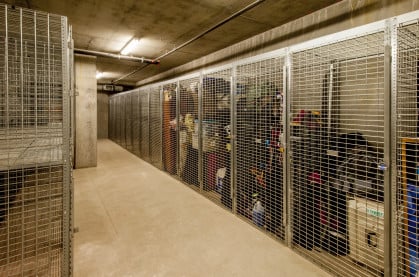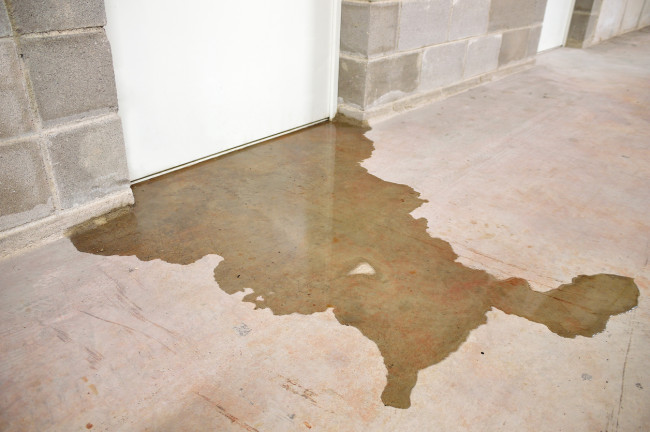Our building wants to create storage spaces to sell or rent to residents—what do we need to know?

The board will be responsible for drawing up agreements with residents for the use of this new amenity.
iStock
“If you have additional space in your building or would like to provide dedicated storage for residents, this type of amenity can be both a selling point for your building and a way to maximize revenue,” says Steven Wagner, a partner at Adam Leitman Bailey, P.C.,who represents co-op and condo boards and owners.
First, you will need to identify a place that can be used for storage. If the area is being used for any other purpose, you will need to terminate that use and establish how you plan to charge residents for using the space. The board will be responsible for drawing up agreements with owners or shareholders for the use of this new amenity.
Finding a location to use as storage space
You may have already identified the place you plan to use as a storage area. However, keep in mind that there are safety requirements—for example you can't store property in a boiler room. Wagner says you should also check the Certificate of Occupancy to make sure the use of the area you have in mind isn’t designated for another purpose.
As an example, Wagner says a board was recently issued with violations because their storage area was, in fact, a group of doctors’ offices. “The offices were not rented out and the owner of the apartments repurposed them as storage space. However, there were no sprinklers and the Certificate of Occupancy stated the rooms were to be used as medical offices,” he says. When an inspection was made, the condo building was fined.
In most cases, a board can proceed with plans to make use of space for another purpose as long as it can be achieved safely and within the law. Wagner says in co-ops, and very often in condos, there’s language in the bylaws that says any space outside the apartment itself is used under a revocable license. “This means the board would have the right to terminate that revocable license and use the space for an alternative use,” Wagner says.
Clearing the space
If the storage area you’ve chosen is already in use for another purpose, or if there are items in the space, you will need to clear it. “You can inform residents they have to remove their property—or at least tag it with their name—within a reasonable time period,” Wagner says. If no one tags the items or some of the property is not removed, it is possible it belongs to a resident who has already moved out of the building.
The question then becomes whether you have the right to remove it without liability. “You might want to consider moving the items to a storage facility,” Wagner says. At least no one can say you threw away their Ming vase, he says.
You would then need to notify residents that any property not picked up within, say, 30 days will be put in the storage facility and can be recovered with payment to the storage company.
“Storage companies typically auction items off if they go unclaimed (and unpaid for) after a certain amount of time,” Wagner says. He also recommends adding language to the house rules saying that any items not tagged or removed within 30 days of the notice will be deemed abandoned and may be removed by the board without liability.
“The board would then need to notify everyone of the new house rules governing the use of the space,” Wagner says. You might also want to give additional reminders to residents and provide the tags you want them to use, in an effort to do all you can to help owners, shareholders, and in some cases tenants, work with the board.
The rights of rent-stabilized tenants
You may meet complications if there are rent-stabilized tenants in the building—typically these would be tenants in a co-op building who did not buy their apartments at the time of conversion and are renting from the sponsor.
If, as part of their lease, any rent-stabilized tenant has the right to store items in a space dedicated for that purpose, and for their exclusive use, the board cannot simply take that away and the tenant may have a justifiable claim.
“A landlord cannot take away an essential service that a tenant is entitled to under stabilization,” Wagner says. However, if their property is stored in an open area, where other residents also have access, the rent-stabilized tenants will likely not have a claim.
Wagner suggests checking the proprietary lease or the offering plan very carefully. The board may have responsibilities to the apartment owner if the tenant obtains a reduction in the rent-stabilized rent due to the loss of exclusive use of a storage bin. “Although this indemnification is a standard clause, it is not in every offering plan, proprietary lease or bylaws,” Wagner says.
Selling and licensing the space to residents
Once the area is cleared and you have removed any abandoned property, you need to decide how the board will charge for the storage. Some buildings install stackable metal bins, others have gone as far as building out storage rooms with plasterboard and doors that can be secured with a lock. “These are more private but more expensive,” Wagner says.
When it comes to charging residents, the board has some flexibility. One way of doing it would be to auction off the spaces annually to the highest bidder. Another strategy would be to sell the bins themselves for a few thousand dollars. Wagner suggests you might also want to have residents pay a small monthly fee of around $20 in addition to their purchase.
“That one-time payment in the years to come may not cover the cost of maintaining the area. Also if someone is not paying a small fee for the space they may be more inclined to hold on to the unit even after it is no longer needed,” Wagner says.
A larger fee can be charged to residents who simply want to use the space but not buy the bins or storage lockers. In this way, the condo or co-op retains ownership of the bins and the resident pays a larger monthly fee to the board for its use.
Drawing up the license agreements
A license, rather than a lease, is standard and needs to be drawn up for the use of the bins.
Why a license? Because, Wagner says, license agreements are relatively simple. A lease gives exclusive right to use an area for a specific period of time whereas the benefits of a license include a board’s ability to more easily relocate the bin and more flexibility with the term.
The board’s priority will be to draw up a license agreement that protects the co-op or condo in the event of loss or damage to property. “This liability waiver is particularly important when you consider the increased risks of flooding due to climate change,” Wagner says.
The license agreement should also include limitations on what can be put in the storage bin. “For example, you don’t want anyone putting anything flammable, hazardous, poisonous, or anything that can deteriorate over time—like perishable foods,” Wagner says.
There should also be the right to assign the bin to another resident. However, the board will want to make sure any new license holder lives in the building.
A board may want to relocate the bin or raise the fees if necessary. Wagner says this right should be included in the license and suggests any increase in the cost of using the bins could be tied to maintenance or common charge increases. The board also wants the right to terminate a license if someone moves out of the building or violates the rules.
If the co-op or condo is going to charge a large fee upfront to purchase the right to use the storage space or bin, the buyer will want to be able to sell the right with their apartment sale or to another resident in the building. This should also be spelled out in the license agreement.
New York City real estate attorney Steven Wagner is a founding partner of Wagner, Berkow, & Brandt, with more than 30 years of experience representing co-ops, condos, as well as individual owners and shareholders. To submit a question for this column, click here. To arrange a free 15-minute telephone consultation, send Steve an email or call 212-584-1973.
You Might Also Like
Sign Up for our Boards & Buildings Newsletter (Coming Soon!)
Thank you for your interest in our newsletter. You have been successfully added to our mailing list and will receive it when it becomes available.























